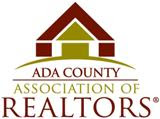The ways to communicate in this world are ever expanding. From Facebook to blogs to Myspace to Twitter... the possibilities seem endless. With more and more ways to connect, there are also more and more ways to accidentally get yourself in trouble.
In the REALTOR® Code of Ethics, there are two articles that seem to come under constant fire-- Article 12 and Article 15.
Article 12 says that REALTORS® will be honest and truthful in all of their advertising, marketing, and communication. This specifically included URLs as expanded by the Standards of Practice incorporated back in 2008. Does this apply to screen names, usernames, handles, and avatars? How far does it have to go before it is no longer a true representation?
Every day, I hear new and unique ways that this line is crossed. A new case interpretation added this year talks about a REALTOR® who specifically registered URLs that were very similar to the names of his competitors... only, the names happened to be "misspelled". When called in front of a hearing panel, he said that it wasn't dishonest because it wasn't the actual name of his competitor. He said by misspelling the name, it became meaningless, and therefore wasn't deceptive... Do you buy that? Yeah, neither did the hearing panel.
That is a pretty blatant instance (I think). What about more subtle issues? What if your avatar is something like "WhiteWaterRealtor". You picked it because you are a white water enthusiast and you sell real estate. If there is also a real estate brokerage named White Water Real Estate, have you taken their name and is a deceptive effect created? You could argue that it is a true picture because you are a white water rafter, but you don't work for that company. Is that a potential article 12 violation? (Weigh in! Tell us what you think in the comments)
Now, the Code of Ethics doesn't specifically mention avatars or usernames, but that doesn't mean they aren't covered in Article 12. The 'spirit' of the article is honest and truthful in all formats...Be able to explain and defend your choices (Hopefully better than the gentleman in the case study).
Article 15 is the other issue at hand. Article 15 says that you will not knowingly or recklessly make false or misleading statements about your competitors. With the many platforms you now have your fingertips, you need to be very careful about what you say and what audience it is reaching--and it may not be the audience you were intending to reach.
On Facebook, depending on the privacy settings you've set, it's possible that the friends of your friends can read what you write. So if you are going to vent or bad mouth, just because you aren't "friends" with that individual doesn't mean it won't come back to them. On Twitter, anything you post is available to read to anyone at any time. For example, I was forwarded a twitter link, and mind you I don't have a twitter account, and I could access every tweet that person had made.
The market is challenging right now--we all know that--and many good people are getting frustrated. While it's a human universal to get mad, vent, or try to take down your competitor, just remember what you say and do, how you say and do it, and where you say and do it can lead down a path that you really didn't mean to take...
Happy Trails!
Tuesday, March 10, 2009
Subscribe to:
Post Comments (Atom)

.jpg)

No comments:
Post a Comment
By submitting your comment to this blog, you are allowing ACAR the right to use and/or display it at our discretion.
We reserve the right to remove or edit any comment due to offensive or inappropriate language, relevancy, commercial endorsements, and spam. This could be done manually or due to automated spam detection software. We will not remove or edit comments we disagree with nor will we edit comments to change the commenter’s intention.